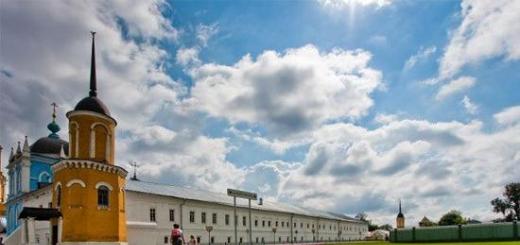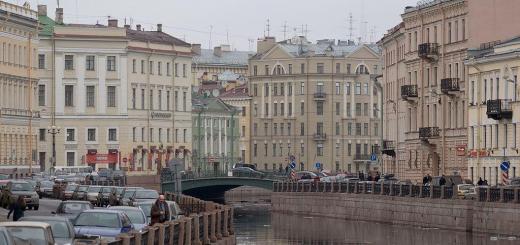Ireland is one of the most attractive countries located in Northern Europe. The capital is the city of Dublin, which is home to over a million people (including suburbs). Many foreigners from different parts of the world show a special attitude towards Ireland, wondering how high the chances of settling in the country of interest are.
The main features of life in Ireland
The standard of living in Ireland can be compared with European. At the same time, local residents can appreciate the developed system of social support. Socially unprotected citizens have the right to rely on assistance from public authorities as a result of which people use all the opportunities for education and employment.
The sphere of education and medical services are developed at a decent level. However, the features of the structure of both directions are unusual. Despite the special implementation of both areas, one can focus on a qualitative average and higher education, effective treatment in the shortest possible time and the provision of insurance policies to ensure the protection of the indigenous people of Ireland.

Benefits of living in Ireland
Many migrants who are interested in permanent residence in Ireland are interested in the perceived benefits. Despite the special system of organizing the life of the whole society, quite serious advantages can be noted not only for the indigenous people, but also for migrants.
- High level of development Ireland and the absence of cruel legislation. Thus, one can count on a fairly calm life due to conscious perception social activities and bills, norms of behavior by local residents.
- Mentality and understanding of simple truths are more significant than in other countries. In this regard, the Irish are trying to comply with the current legislation, noting its loyalty.
- Economic stability, as a result of which you can count on promising employment. In Ireland, there are always good opportunities in work, business, study. All people who are ready to set a goal and strive to achieve it will certainly celebrate success. In addition, all workers and entrepreneurs note a decent level of income.
- Ireland is a country that attracts with its picturesque nature, mild climate and ancient sights. In fact, living in such a country can be truly enjoyable.
- The locals are different tolerant character to almost everyone and everything. Friendly and open people have a good sense of humor, as a result of which even migrants can appreciate a loyal attitude towards themselves.
- Drivers note the following advantages: quality roads and simple signs, clear rules traffic. This helps to reduce the number of car accidents on the roads.
- Developed infrastructure allows everyone to appreciate the opportunities for a pleasant pastime.
- Affordable prices for food and clothing. Many citizens can easily provide themselves with all the essentials.
- Developed Russian-speaking community guarantees the successful and rapid adaptation of Russians in Ireland. This advantage turns out to be one of the most important for those who are planning to move.
The above benefits help many Irish citizens and migrants to appreciate the prospect of living in this country.

Disadvantages of Living in Ireland
So, what are the disadvantages of living in Ireland should you focus on?
- The weather is often wet, rainy and windy. However, even under such weather conditions, one can note the mildness of the local climate.
- Renting real estate, transport services are quite expensive. Despite the availability of essential goods, the budget still has to be carefully planned.
- Public transport is not well developed, which can make it difficult to get to your destination quickly.
- Unusual organization of social life. It is important to be prepared for the need to obtain TV licenses, draw up contracts for Internet connections, and legalize fishing. Local legislation is simple, but you still need to get used to certain specifics of life in Ireland.
- Many Irish people speak slang or dialect, so the language barrier will be noticeable.
The above disadvantages of living in Ireland are often minor, which is why many foreigners are particularly interested in a potential move to a European country.

Opportunities to live in Ireland
Irish citizenship must be obtained in stages:
- Initially, you should take care of the preparation of the installed package of documents.
- Subsequently, the documents are submitted to the embassy. At the same time, verification of the correctness of the documentation requires from one to three months.
- At the next stage, a response is provided confirming enrollment in the queue for the delivery of additional documents for questioning.
- After the survey, you can get a certificate confirming the completion of the survey and the acceptance of documents.
- Decisions on obtaining Irish citizenship are required to wait about six months.
After successfully completing all the stages, you can live in Ireland on a permanent basis without any problems. The personal and professional qualities of each person turn out to be important, since it is on them that the level of crime and tolerance, prospects for further development all spheres and economy. Often, migrants are satisfied with their move to Ireland and the subsequent prospects.
This time he warns tourists against the main mistakes. Today in the issue: why sleep is better in the south of Dublin, which travel guides are not required to visit, and why a traveler in Ireland needs dress shoes.
Illustration: Anastasia Timofeeva
1. Applyintravel agency
The main mistake tourists make at the stage of travel planning. On my first trip, I myself followed the same path and turned to a travel agency, which found me a hotel, issued a visa and charged me a tidy sum. But an Irish visa can and should be done on your own. First, it's cheaper. Secondly, the travel agent will not help you in any way. Kit required documents standard and very well described on the website of the Irish Foreign Office. Instructions for filling out the questionnaire are provided in Russian here. If the embassy requests additional documents, then you will still need to provide them one way or another, and the presence of a travel agent in this chain does not play any role at all. Unlike other countries where you can only apply through the visa center, the Irish Embassy accepts everyone in private and without an appointment.
By the way, the hotel chosen for me by the travel agency turned out to be so-so - in the center, but at a nightclub. It was absolutely impossible to sleep: first, parties until one in the morning, then - showdowns under the windows. I had to move to a hotel. Don't think that Dublin's city center is the perfect place to stay overnight. The Irish capital is very small, and, as for me, it is much better to stay in the south of Dublin, within walking distance from the center. For example, I like the area near the Grand Canal (D2-D6), Ranelagh, Rathmines or in Ballsbridge.
2. StayinDublinon theweek
I love Dublin very much, but there is definitely nothing to do here for more than two or three days. When I got my first visa, the embassy called me and asked what I was going to do in Dublin for a whole week. I told in colors how I would go from Patrick's Cathedral to Dublinia, how I would allocate a whole day to the Temple bar, and another half day to the Guinness Museum. The visa officer giggled strangely at this, but he gave me a visa. Who knew that from the Cathedral to the museum is only a 7-minute walk, and the entire Temple Bar can be walked around in 15 minutes? So, if you are planning a trip of 3-4 days, I would recommend setting aside two days for Dublin, one - and one more - for an excursion to national park Glendalough or Powerscourt Gardens.
3. HanginTempleBaronevenings
Oh, the glory of Temple Bar! Many pubs, bars, cafes, tattoo shops and troubles can be found in this area of Dublin. To be honest, I don't like Temple Bar in the evening. But just food with delight when I come here early in the morning, while all the tourists finish their Irish breakfasts, and the locals treat their hangovers. It is important to get to this area even before groups of foreigners begin to actively trample on the worn-out paving stones, but after the utilities have cleared the streets of the consequences of last night. At 9-10 in the morning there is often no one here at all. The bright, colorful Temple Bar, with its graffiti and quirky shops, looks completely different when there are no drunken crowds around.
4. Tryhugimmense
Everyone is doing it. The desire to see everything possible and impossible and to be in time for all places at the same time has ruined more than one trip. But attempts to embrace the immensity will only worsen the aftertaste of the trip, leaving an unnecessary impression of fuss and haste. So when planning your trip, be sure to make a must-see list and highlight the key points that are important to you. If this is the Cliffs of Moher, then first of all go there and spend several days in the region: pay attention not only to the rocks, but also to nearby parks, islands, excursions. Keep in mind that the weather can be bad and you might want to wait until the next day for the best views. If the contemplation of nature is not included in your plans, but “their life and customs” are interesting, plan your way through big cities and picturesque villages, giving yourself a little extra time. I do not urge to stretch the trip for several weeks, but you should not try to go around the whole island in a matter of hours. Nothing good will come of it.
5. Refusefromrentcar
A car in Ireland is a must. I know there are many wonderful stories about how people had a great time in traveling by boat, bicycle, bus or on foot. But this is more the exception than the rule. If you're only going to Dublin, Cork or Limerick, it's really quite easy to get by without a car. But to get to any more or less remote location, get ready to suffer a lot. Another question is why, if you can rent a car. With a car, you do not depend on anyone or anything and significantly save time on overcoming distances. Here you can always hide from the rain, make a halt, have a bite to eat and even sleep. You are free to reshape your route as you like, and change your plans without regard to circumstances. The cost of gasoline on the island is from 1.20 to 1.31 euros.
6. DepartintouronringKerry(Ring of Kerry)
Forgive me the authors of the guidebooks, but not all of the Ring is a must to visit. In my opinion, the western part of the Ring of Kerry, which runs along the coast, is more than enough. Beautiful cliffs, coves, beaches, dolphins, fabulous views, the freshest seafood and excellent restaurants - all this can be found in the west. The eastern part of the Ring is not so picturesque, interesting and tasty (at least the one that guidebooks recommend), and in order to appreciate all its beauty, you need to go hiking. Initially, hiking is a hiking trip through the mountains along special routes without heavy backpacks on your back, but today hiking is generally called any hiking trip in any terrain - crossing rivers, mountains, ridges, swamps, bogs and fields. In this case, routes and trails are not always laid out, so such a vacation is not for everyone, and the weather often fails. So I would skip that part altogether and go straight to the coast.
7. TakeWithyourselfnotthatclothes
When packing for your trip to Ireland, consider where exactly you are going. In the west of the country, weather conditions are worse than in the east, it rains more often and strong winds blow. In addition, take into account what kind of vacation you are counting on. If active, there should be one set of clothes (I already compiled a list of clothes for such a holiday, you can see it). If you are in the city, choose comfortable clothes and shoes without heels - you often have to stand in pubs all evening.
The winds can be really harsh, biting to the skin, so in Dublin we dress in layers. In summer, even on a sunny day, be sure to take a cardigan or sweatshirt with you - the weather can suddenly change. For example, the most popular clothes for girls are jeans, a top and a cardigan (or a dress and a jacket on the shoulders), that is, layering is the main fashion trend on the island at any time of the year. Men on a trip would be good to take not only comfortable sneakers, but also shoes or classic boots. In some pubs and clubs, only smartly dressed people are allowed in, sweatpants and sneakers will not work.
In summary, I can say that if I went to Dublin for a couple of days, I would take with me a pair of ballerinas, a pair of Skechers, two jeans, a sweatshirt, a few tops, smarter blouses for going out to the pub, a scarf, a hat, gloves (if the trip autumn, winter or early spring) and a small bag.
8. Have dinneronlyinpubs
The restaurant business is booming right now. Today in Ireland you can eat so deliciously and beautifully that it seems to me a crime to dine or dine anywhere. Tripadvisor will come in very handy in this case and will really help you choose the best restaurants if you are based not only on the rating, but also on the number of positive reviews. Because sometimes it happens that a great restaurant with 500-600 good reviews takes 10-12th position in the list.
Also pay attention to the Early Bird Menu - a menu for early birds, it is available in many restaurants. Dinner is also served on this menu, from approximately 17:00 to 19:00. This includes two or three dishes to choose from at a more modest price than if you ordered each item separately. For example, in F.X.Buckleys you can try the best steak in the city (if not on the whole island), appetizer and dessert for only €30.50. Even though one steak on the menu costs €34.
Choose not so much Irish cuisine as Irish products: beef, seafood, potatoes. Many restaurants partner with farmers and purchase only local and organic products. Believe me, the gastronomic pleasure from such dishes will be much greater than from the world-famous Irish stew in the nearest eatery.
MariaWhite
An old Irish legend says that when Saint Patrick christened the country, he drove all the snakes from the Emerald Peninsula. First, the reptiles were gathered on the top of Crow Mountain, and then in the name of the Lord they were ordered to throw themselves into the sea. Historians believe that the patron saint of Ireland did a lot for the country, but the expulsion of snakes cannot be attributed to his merits. The truth is that there have never been creeping reptiles on this island nation.
Archaeological data
Let's start with historical and archaeological data. Ireland is a northern island nation. None archaeological excavations no evidence of snake fossils could be found in the country. Historians believe that for a long time, even before the islands broke away from the land, a cold climate prevailed here and there was a kingdom of ice. Thus, reptiles were in no hurry to occupy the territory of modern Ireland. And after the warming happened, the British Isles became independent objects. Only now the snakes living in Europe on land could not reach the northern latitudes. Before them appeared an impressive obstacle in the form of melted glaciers, leveled with sea water.
Animal migration
After the last ice age began the migration of animals from Europe. This was about 10,000 years ago. Then the lands of Ireland and England did not acquire their modern shape, but they gradually dumped annoying glaciers into the sea. First of all, large mammals began to develop new territories: wild boars, bears and lynxes. It is believed that Ireland and England were divided between themselves more than 8,500 years ago. The British Isles completely separated from Europe 6,500 years ago. Which means the snakes had two thousand years to get into the territory. modern UK. And so it happened, at present, snakes, copperheads and vipers live in Foggy Albion. 
Other places where there are no snakes
In addition to Ireland, there are other island states and regions on Earth. major countries where there are no snakes. For example, there are no snakes in Greenland, New Zealand, Hawaii, Antarctica, parts of Canada and northern Russia. It turns out that Saint Patrick was too busy exorcising evil spirits. Well, if apart from jokes, snakes deserved contempt among Irish Christians. People here have a pathological fear of reptiles and still blame them for the expulsion of Eve from paradise.
The former patron was depicted in the form of a snake
It is also known that the Celtic god of fertility was depicted as a reptile. His name was Sernunnos, and it was he who was worshiped by the locals before the reign of Christianity on the island. It is believed that the legend of the expulsion of snakes came from here. Saint Patrick replaced his predecessor and got rid of the reminder. However, we already know the truth, and it is confirmed by scientists Nigel Monaghan, curator of natural history at the National Museum of Ireland in Dublin, and Mark Ryan, an expert at the Center for Health Sciences at Louisiana State University. 
The only exception
Question about nuances life in ireland periodically rises in social networks. Here are the views exchanged between the members of the Russian-speaking Ireland group during discussion this question.
Konstantins Sablukovs spoke in the most detailed way in the discussion. He was able to sort everything out. This is what his version looks like:
Pros of Irish life for an expat:
- Developed country, not burdened by rigidity of laws
- Beautiful nature, many attractions
- good roads and simple rules and signs
- Friendly open people bad feeling humor
- The mentality and understanding of simple truths is an order of magnitude higher than most countries. (They live not according to “concepts” and according to “authorities”, but normally)
- A tolerant country, and almost everyone and everything
- Many opportunities, both in work and in study and business
- Stability
- Good Russian-speaking community: schools, camps, church, meetings and so on
- Cheap food, clothes and so on. I'm not talking about brands, but about essentials.
- Freedom to use your own language. Even newspapers are in Russian
- Pubs, concerts and all that!

What are the cons:
- Weather (damp, rainy, very windy and eternal +10)
- Expensive – rent, transport, etc.
- Underdeveloped public transport
- Visiting scumbags from our countries 🙂
- Tolerance 🙂
- Island - hit the road somewhere only by plane or ferry
- Lots of nuances and oddities like Internet connection contracts, TV licenses, no licenses for sea fishing, but presence for river fishing, not connected tram lines, and so on.
- Slang and dialect - sometimes you don't understand people
- Lack of knowledge by the Irish of our culture, films, shows and so on. You can only talk with them about what they are watching, the rest does not interest them (not all, but most)
- Weak (almost nightmarish) and expensive health care
- Weak (sooooo weak) education from school to university. (I'm not saying that you can't find good things and study normally, but in general the system is built like a pipeline that doesn't bother you in general and doesn't load you - passed the test, wrote the paper, diploma)
- Not very good kindergartens, but very expensive relative to the minimum wages of course.
- Pubs close early, so do discos
- The choice in stores, as probably with the advice (I didn’t live with the advice, so I’m speaking figuratively 🙂) compared to other European countries
 In the world there are many beautiful higher educational institutions, which is considered prestigious to graduate. Trinity College University - Trinity College is one of them.
In the world there are many beautiful higher educational institutions, which is considered prestigious to graduate. Trinity College University - Trinity College is one of them. Education in Ireland
It can be added to the comments above that Julia Trahlmann disagreed about schools, who believes that education in Ireland is at a high level:
Both children had small classes (max 18 people) and great teachers. Yet close to home.
High school - I sent them to an Irish school - they are taught in Irish. Again small classes, programming lessons, art and much more.
Both speak 5 languages - and Irish, English, French and Spanish are studied at school. And this is the usual Public School. And 3 km from the house where from to take the school bus to the door and back.
In April, my shy daughter performed at the 3 Arena in front of 10,000 people. I am very grateful to their school. I have studied at two higher institutions And now I'm doing it again for the third time. This is in addition to a diploma from Estonia ..
I believe that education is very accessible, and for any interest. The main thing is to decide what is interesting. There are still a lot of different circles and not only sports, and not only for children ..
I continue to publish stories of our compatriots about life abroad. Today we will talk about Ireland.
"Hi. I am Maxim Bugrov, a native of Estonia, I was born in Ida-Virumaa. I'm 34 years old. I was born, like most of us, in a country that no longer exists. Despite the fact that he received citizenship and mastered state language, so he remained a citizen of the USSR. Since many citizens former USSR for the most part, they could not adapt and succeed in the changed conditions of wild capitalism, including myself, in 2005 I had to leave for a better life to Ireland, where I still live in the capital of this country, Dublin. Managed to capture a piece of the Celtic Tiger, or economic growth boom. For a long time he worked as an engineer for the installation and maintenance of signal systems in buildings. On the this moment I am a student (trying to get a new qualification).
I would like to tell a little about the customs and characteristics of this country.
On the one hand, of course, the country is like a picture - green lawns all year round, beautiful nature (and where it is not beautiful), clean springs drinking water, clean sea air, maximum temperature in January -8 °C, in July +20 °C, it would seem a paradise country. However, on the other hand, not everything is so chocolate.
Perhaps I'll start with medicine. Well, first of all, just coming to see the family doctor costs 50 euros. Usually these people are jack-of-all-trades: a gynecologist, a pediatrician, a specialist in skin diseases, etc. etc. You understand the idea, but in fact, this doctor does not really understand anything, and his main task is to send you to the hospital for an examination or simply cut off 50 euros and thank you for the visit. However, this is the most sane part. I ended up in the hospital last summer with intestinal inflammation and a temperature of 40 +/- degrees.
Reception looks like this: AT great hall chairs are arranged. Where they take everyone and put them in waiting for an examination, which can happen in 2 hours or 4, depending on the number of people in front of you. My temperature pills stopped working during this time, and I already got to the examination almost in the form of a vegetable. At the request to give an antipyretic, he received a nod, and waiting for another 3 hours, during which he managed to fall asleep. After such an expectation, I was given an antipyretic and, in the end, I was assigned to a bed in the corridor, “in a draft between the garbage dump and the toilet,” like at Khazanov’s, where I was put on a drip. The light was not dimmed there, the voices did not subside all day and night, and I spent 3 days there. During this time, countless examinations were carried out by different doctors, pictures were taken from all angles of the abdominal cavity using expensive equipment. And so on. However. No problem was found. Treatment was not carried out, and the diagnosis of the disease completely failed. Thanks to the procedures, some of the symptoms, along with the temperature, disappeared. Most of them remained.
After that, as soon as I recovered a little, I flew back to Estonia, where the Doctor, simply by describing my symptoms, identified my problem at the moment, and the swallowed probe proved its validity, the procedure took 1 day. Medications were prescribed, which, in the end, put me back in line. The moral of this story is simple. Diagnosis of diseases is simply absent here. Doctors are like blind kittens. Several young people lay next to me with similar problems, only they suffered one for seven years, and the second for 4 years. So they didn't heal. I don’t even want to remember the price of this whole epic, it was very expensive.
For us, knocking on a neighbor's door and asking for salt, or on a birthday, calling neighbors to our place for a holiday, inviting friends, girlfriends, colleagues to visit our house is something that does not require any effort on ourselves. It's not like that in this country. They smile at you at work, in the store, in transport, they say thank you, please and excuse me at every opportunity. However, this is only a mask, everyone is so deeply indifferent to your problems, affairs and in general everything connected with you, that speaking and smiling in your face, you can see in your eyes that at this moment you are being sent far and for a long time. Here, of course, you can try to invite a native to visit you, but I assure you that you will not get the most pleasant impressions. Firstly, you will not be able to feed them food, because they will not eat anything that you cook, preferring fast food or homemade food (for those who are especially picky, I cook any first and second courses perfectly). And secondly, simply no one will come to you, they will also look at you as maniacs. Here, the maximum expression of their disposition to you will be a joint trip to the bar. Once. Out of courtesy. Your openness and directness can and will be used against you. If you can't whisper into your boss's ear about your co-workers' pranks, you'll end up being the scapegoat. Since all the dogs will be hanged on you, they will write off all their mistakes and so on. It's a completely different mentality. Of course, they don’t go into a foreign temple with their charter, but these things must be heard and understood.
The most interesting thing is that the Irish are even more or less, however, like the Scots, objectively not a bad people. Just a stranger. But the British are already further and more incomprehensible to a Russian person. About them a separate conversation. Of course, everywhere, in any country there are idiots and geniuses. It's not about them now.
Communication with people of your mentality, on your mother tongue, this is such an invaluable gift, like, for example, the opportunity to breathe every second. When it is, it is not noticed; when it is not, the person dies. In our case, I personally am dying from a lack of communication, despite the fact that I have a wide circle of friends and like-minded people. Online.
If you ask me if I want to exchange a “well-fed” life abroad for a poor life in a Russian village, then I will tell you - definitely yes. Personally, I'm fed up with this capitalism, isolation from nature and normal people. Fed up with Neanderthals in human form, miserable people on the whole head, of which the darkness is dark here.
If now Russian Federation will issue a law: all former citizens of the USSR who speak Russian are free to come to the Russian Federation, obtain citizenship and a residence permit. Then I agree to go to the village of Gadyukino, and raise Agriculture. In shit and dirt. Better this way than like this.
I would like to specifically focus on the following things. In this and other countries of Europe there is no such thing as a forest, lake, or other natural object in our understanding. Everything belongs to private individuals, there are fences and restrictions around. Making a fire is generally not allowed anywhere, you can put up a tent only in special places, otherwise you can get buckshot in a soft spot. If you're lucky. Fishing is associated with huge amount restrictions, however, as well as any kind of similar activity, including hunting. All these things for someone may not have of great importance. For me, the opportunity to be alone with nature is very valuable, and it is extremely difficult to implement it in the way that pleases the soul, and not in accordance with someone else's decree and law.
Well, what, is there really nothing good in this country, you ask? Of course there is. As in any country, there are good things. It is also social. aid that the EU is fighting, and tolerance for other peoples, and high salaries (at high costs). Well, for example, to make it clear, the minimum wage is 300 euros per week. The average rent for housing is 600-1000 per apartment, electricity and television are still minus 200-300 per month. A bottle of vodka in a store 20-25 euros. A pack of cigarettes 9 euros. It's good that I gave up both, and so - good luck with the purchase. In general, these are not Paradise guys. I want to go home to the USSR."
What do you think about the adoption of such a law in Russia? All former citizens of the USSR and Russian Empire and their descendants, who speak Russian, can come to the Russian Federation and obtain citizenship?
P.S. Previous publications.










